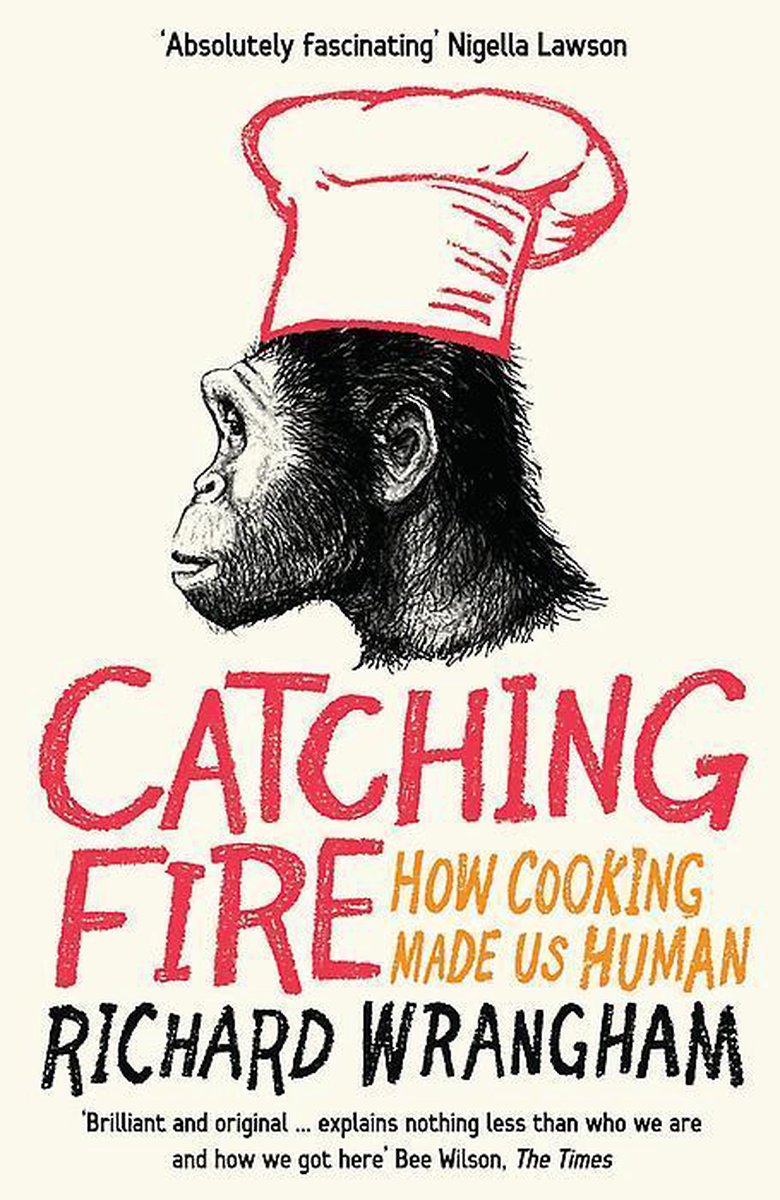A must-read to the Next Nature fan: Catching Fire: How Cooking Made Us Human (2009). Written by British primatologist Richard Wrangham, the author shares his hypothesis that cooking food was an essential element in the physiological evolution of human beings.
Humans are the only species on earth that cooks its food. Not only do we cook our food, but we usually find the flavor of cooked foods preferable to the raw version. Compare the smell of raw and pan-fried bacon. Which version makes you drool?
It's no coincidence that your dog may be drooling alongside you. Several animals that have never eaten cooked food show a marked preference for a nice roast or stir-fry. Chimpanzees, bonobos, gorillas and orangutans all prefer cooked carrots, sweet potatoes, and even meat.
This natural predisposition has important implications for human evolution. Harvard anthropologist Richard Wrangham argues that cooking is not some simple, pleasant cultural development. Instead, it is the central driving force that transformed us from primitive hominids into Homo erectus and on through to Homo sapiens.
The key to cooking lies in the energy demands of our giant minds. The human brain uses up a quarter of the body's daily energy requirements. Cooked food provides significantly more available calories than raw food. From a chemical perspective, a raw and baked potato might have the same amount of total calories, but from a dietary perspective, the starches in a raw potato are largely useless to the average human gut. Add to this the fact that many poisonous plants become edible after cooking, and the first chefs were looking at a sudden increase of calories, not to mention free time. This influx of tasty nutrients allowed Homo erectus to redirect spare energy to evolving oversize brains.
Wrangham's argument breaks down if animals favor raw food when give a choice. If our ancestors did not naturally prefer cooked food, they might never have bothered figuring out how to throw an antelope on the barbeque. The fact that the great apes gravitate towards the taste of cooked food is a good indication that Wrangham's hypothesis may be correct.
Humans have become so perfectly adapted to cooking that it's tough for us to live without ready access to a stove or campfire. Raw foodists have supplements, drying machines, and other wonders of modern food technology to get enough calories to survive. According to Wrangham, there are no verifiable examples of anyone surviving on a raw diet in a state of nature. Throw someone on a desert island with an endless supply of steak tartare, and they'll still die of malnutrition unless they brought along a frying pan and a zippo.
Our dependence on heated food is encoded in our bodies. Our weak jaws, tiny teeth, small stomachs and short guts all indicate that our bodies are absolutely dependent on cooking as a a form of 'exterior digestion'. Cooking, along with language, may be the most natural technology that there is.

Share your thoughts and join the technology debate!
Be the first to comment